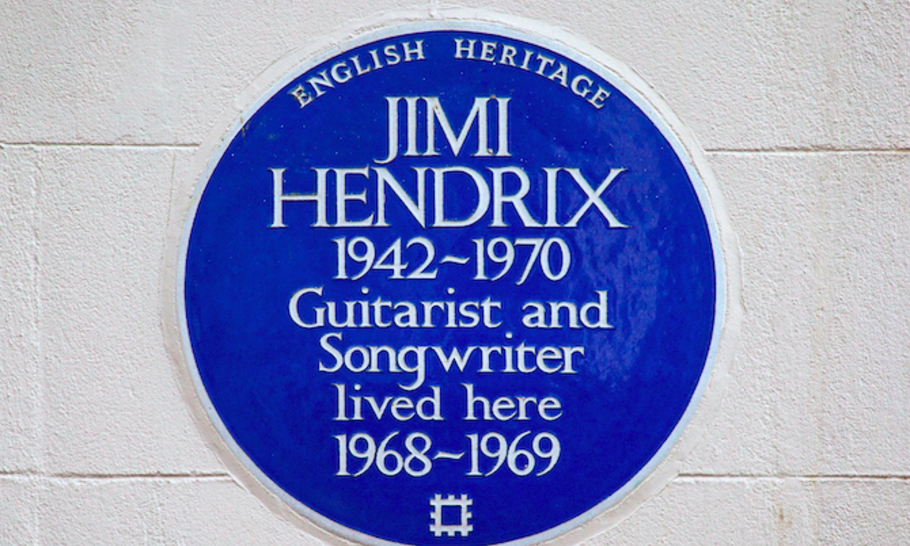What would you pay for a Blue Plaque?

(Alamy)
The rise and rise of prices for property everywhere defies rational explanation, but London ’ s property market has a conspicuous quirk that has been baffling analysts for a long time. Buyers chase London properties that come with a Blue Plaque, a marker of a person of note who once lived at that address. New research shows that a Blue Plaque bumps up the price of a home by over a quarter.
Blue Plaques are a focal point of London streetscapes. Instantly recognisable from a distance, passers-by slow down to find out the identity of the personage in question and then rush on, often with the comforting feeling that even the most accomplished luminaries made do with humdrum domesticity. Blue Plaques have been going up in London since 1866 and selection criteria are rigorous. After over a century and a half there are less than one thousand and each year adds about a dozen. But for all their elitism, Blue Plaques are also a testimony to impermanence. Quite a few Blue Plaques honour someone obviously famous once upon a time, but now known only to devotees.
Across today ’ s London, a Blue Plaque brings out the buyers. To quantify by just how much, economists trawled through 900 property sales and compared prices for properties with and without recent additions of a Blue Plaque. Their full paper computes a whopping windfall of 27% to the property owner. Given a median London property price in the region of £ 500,000, the Blue Plaque premium comes to well over £ 100,000.
There are further intriguing details. Regardless of neighbourhood, condition of building, and price tag, this premium is remarkably steady. For plutocrats as well as for paupers, the gratification that comes from living in a home with a Blue Plaque beats a range of alternative benefits — a new roof? An extension? Or even a home in a better neighbourhood?
Economists find it easier to explain prices than values. The authors, economists at the universities of Leeds and Hertfordshire, conjecture that in the eyes of owners a Blue Plaque sprinkles magic dust, so to speak, letting them bask in reflected glory of the one-time occupant. That surmise seems to be missing something. For were it true, the Blue Plaque premium would depend on the identity of the Blue Plaque honorand. But in fact, regardless of whether the plaque commemorates an actor or an arctic explorer, a cricketer or a chancellor, the premium is the same. In the property stakes, all luminaries all equal.
The Blue Plaque premium seems to contain a larger message, to do with social psychology. For all the inroads that economics and public policy have made into quantifying costs and benefits and into willingness-to-pay of consumers, there are aspects of the human psyche that elude utilitarian analysis.
Perhaps the contrasting career paths of the titans of business in the United States and in Europe offer a clue. US tycoons sell things that are useful — cars or computers. Business titans in France sell symbols of luxury — perfume or champagne. But one business culture does not have an edge over the other: in the Forbes Rich List the owners of L’Or é al and LVMH are tied with the owners of Tesla and Microsoft. It is somehow reassuring that even in London, an urban culture that flaunts the trappings of wealth and status, a token as innocuous and non-intrusive as a Blue Plaque can count for more than many other tangible features. This shows that even London ’ s cornucopia of materialism cannot smother the human craving for identity and heritage.
A Message from TheArticle
We are the only publication that’s committed to covering every angle. We have an important contribution to make, one that’s needed now more than ever, and we need your help to continue publishing throughout the pandemic. So please, make a donation.




